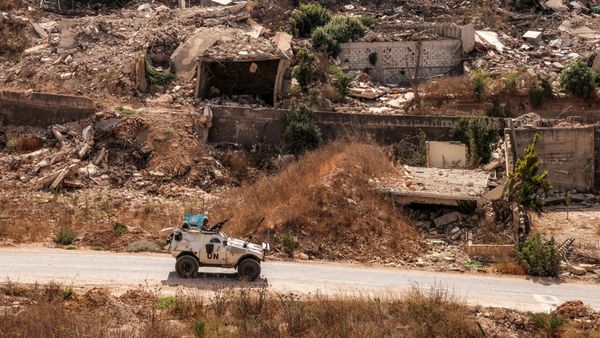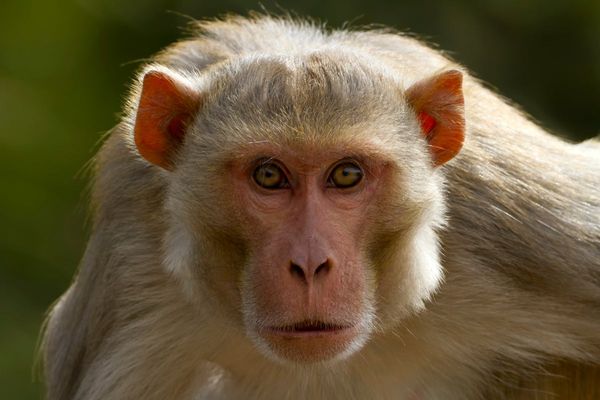
This is not a Hollywood story: it’s a Belgian story, for a start. It’s not even certain to end well; that’s a bit up in the air right now. But it’s a story about how things – important things – could be different. How they could, perhaps, be better. It’s a story about Liège, a city whose 19th-century heyday as a coal and steel powerhouse is long gone. Like many ex-coal and steel towns, Liège is poor, with increasing numbers of households living in poverty, but it also has a strong solidarity culture, a diverse population – and the best waffles.
So far, so Belgian. But why are we talking about Liège? Because in 2013, a group of activists who wanted to make food and city life better, greener and fairer, brought 600 people – all with an interest in food production – together. It asked them to imagine what could be different in Liège, within one generation. It’s an interesting question, the fundamental one really: what change can we concretely effect within our lifetimes? What they arrived at was this: “That in 35 years, one generation, the majority of food consumed in the Liège region would be grown locally in the best ecological and social conditions.” That’s a nice, if wordy, aspiration. But the thing is, they’ve tried to make it happen and even – to a degree – have succeeded.
That moment spawned a movement that is now coordinated by a non-profit called the Liège Food Belt: six employees, funded by a hand-to-mouth combination of local, regional and European money.
“People say it’s a revolution,” says Christian Jonet. “It’s not a revolution yet, but it has the potential: we’re at the start of the story.” Along with his colleague, Elisabeth Gruie, this energetic, but exhausted-looking man is generously squeezing my visit into his packed calendar. Gruie used to be a banker and Jonet’s story is similarly unexpected: he spent eight years selling aeroplane engine repairs, gradually, he says, becoming aware “that I was taking part in the problem, not the solution”. Increasingly conscious of the challenges presented by the climate crisis, he started to get involved in sustainability initiatives as a volunteer, rapidly realising food was one of the crucial challenges for the new millennium. Today he’s the coordinator for the Food Belt.

Under the Food Belt umbrella, there are 28 food co-ops and about 300 individual producers. Those co-ops include retailers, a brewery, bakeries and a vineyard. The shops are supplied by a range of hyper-local producers.
There’s the weekly Court-Circuit market in the city centre, which sells the network’s produce. The Food Belt also holds a 10-day annual food festival, Nourrir Liège, which has spawned emulators in Brussels, Strasbourg and soon Québec. There’s a newly opened House of Sustainable Food that tries to touch the parts of the population that sustainable, organic food initiatives often miss, with cookery classes, nature walks and communal meals.
But the most impressive part might be the schools. The Food Belt worked for several years with schools and crèches to help source food sustainably. Since 2021, about 100 schools are now under a new regime: meat, bread, dairy and fruit are organic, local and, as far as possible, from within the Food Belt network. The city is aiming for 100% organic and local by 2024.
Then there’s the breaktime soup initiative. Thanks to the Food Belt, 5,000 pupils in local schools in vulnerable socioeconomic areas have been getting free, organic, locally produced soup for a morning snack. That’s already a dramatic social good, but the soup is also made by a small non-profit, Echafaudage, that assists the long-term unemployed back into work, then it’s delivered by the Food Belt co-op Rayon9 using cargo bikes. It’s been so successful that the region, which financed the project, has increased its budget fivefold.
It all sounds idyllic, extraordinary, a revolution. Rob Hopkins, sustainability pioneer and co-founder of the Transition Network, agrees: “It’s pretty unique really. It’s by far the most ambitious project like it. They’ve pulled it together with a brilliant can-do spirit.”

But what does that look and feel like on the ground? I went to find out and, over two days, I see what it takes to coordinate better ways of feeding a city: networking, sharing ideas, communicating, lobbying, meetings – lots of meetings. Jonet and Gruie show me around.
We start in the ordinary-looking suburb of Sainte-Walburge where, in the mud and mist, David Wagemans, a bearded guy in combats and a fleece, is boxing up the last tomatoes for the food co-op shop to collect. This is Les Pousses Poussent, the market garden run on land gifted by the city.
Wagemans used to be a chef; he and partner Félicie took over the plot in 2019. “We enclosed it, put it to green fertiliser, dug it, put greenhouses in, a fruit hedge, and then we started in April 2020,” he tells me, as I admire the chard and the beans. “We’ve doubled the surface area. We started with 75 pickers; now we’ve got more than 135.” It’s an inviting place that lures passersby in. As we chat, a couple come and ask how to sign up (there’s a waiting list); another man wanders over to offer Wagemans his excess white raspberry plants.
There are four staff now, they added bees this year and diversified planting. The plan is, if they can, to take over a neighbouring field, also owned by the city, sign up more pickers, maybe get a ploughing horse and train people to use it. “Little by little, we’re trying to go further.” For now, though, Wagemans looks cold – it’s raining – so I ask him quickly how things are going. “Profitability isn’t wild,” he says. “The problem is time and money.” But he’s happy. “I wouldn’t go back for anything in the world.”
Those tomatoes are heading for Les Petits Producteurs shops. In the Sainte-Walburge branch Frédéric – a proud resident of this area with “many different cultures” – shows me around. “It’s not too expensive and it’s accessible to as many as possible.” It’s also no-frills, the focus is on fresh, local, organic fruit and vegetables, with photos of the producers and an explanation of what they do and where. Beyond the fresh stuff, there are loose grains and flours in crates, and a small range of products on simple shelves. Shop policy is, Frédéric explains, “one need, one product. There’s only one kind of mayonnaise – we could have had 10, but it’s simpler and it reduces costs.”

It’s a far cry from Whole Foods, but that’s the point: this is a co-op and their business model is based on a fair deal for producers. Producers set the price – no haggling – and the shops commit to take a certain quantity annually, in advance. There’s total transparency: 70% of the sale price goes to the producers. Talking to shoppers is a big part of the job: persuading, explaining, describing who grew what, or how to prepare celeriac. “It’s a place where you can meet people; where people take their time.”
Pascal Hennen, the mastermind behind Les Petits Producteurs (“but I’m an employee, just like the others”) arrives on his bike. I ask him how this whole thing started. “I became conscious that supermarkets and mass distribution are really harmful both on a human level and for the farming sector. I tried being a grower, but I wasn’t made for farming, pulling leeks in wet snow. I always had cold hands.” He didn’t like the ethics of the large-scale organic shop where he worked either: “I tried to influence them, but it didn’t work.” Les Petits Producteurs launched in 2017 – now there are four shops, with 25 employees.
Spared the logistical issues that dogged supermarket distribution, Les Petits Producteurs became a lifeline for locals during Covid. “Sometimes we were the only person a customer saw in a day,” says Frédéric. Now, though, pandemic shoppers have gone back to their “bad habits” and the cost-of-living crisis has started to bite in earnest. An ebbing customer base, hard on the heels of excess demand during the pandemic, is creating chaos with that guaranteed volume policy. “I don’t know whether madame will buy potatoes,” Hennen says, gesturing at a browsing customer. “But I have to ‘know’ a year in advance.” That’s much harder now. When there’s too much of something, the shop adds an “SOS” label to encourage customers to buy or offers recipe cards; they’re contemplating launching all-in meal packages. Still, times are tough. “We have customers who tell us, I’m going to have to choose between eating and heating: what should I do?” Frédéric says. “We’re a bit trapped by economic realities.”
There’s a more celebratory atmosphere the next day at the “EU organic shop of the year”, La Ferme à L’Arbre. In the orchards, cows and chickens are cohabiting peaceably and inside the vast shop is buzzing following the recently awarded prize. While I’m talking to owner-manager Michel Pâque, he is regularly interrupted by customer congratulations. The ceremony in the EU’s Berlaymont building was a far cry from his daily routine. “You have to send your ID card, they send you a QR code, then it’s like an airport, you have to take everything off! It’s huge, a labyrinth, you end up in this room with microphones and interpreters… It was a beautiful experience, though.”

You can see why they won: this is a hell of a place. There are 40 employees, the vast majority of vegetables are produced on site (they grow 60 varieties), they butcher their own organic beef and pork, those happy hens outside produce the eggs and there’s a cheese counter, deli, bakery and even a restaurant. It’s also the oldest organic farm in the region, founded by Pâque’s father in 1978. The permacrisis is taking its toll here, too, but Pâque is sanguine. “We tell ourselves what we produce is fair and real and local – in principle, that should last.”
La Ferme was threatened with compulsory purchase because a nearby prison needed a new site, but the Liège network sprung into action, lobbying local government, which in turn lobbied the region. Shop and farm are now safe. It is also the birthplace of another Food Belt success story: the Liège Co-operative Brewery. The hops are still grown at La Ferme, but the brewery has a new home, a few minutes’ drive away. When we pop in, Stany Herman is tidying up as the fermenter gurgles. He’s one of a team of six behind the range of four Badjawe beers, Liège dialect for “chatty”. Herman, a former web designer who “tripped” into brewing, is certainly chatty, explaining that the classic blonde is “more treacherous” (6.5%) than the festive (at 4.5%, a “good drinking beer”). All their ingredients are “hyperlocal” – their furthest supplier is 32km away – as is their distribution network. Business is decent – the co-op has 500 members – but here, too, the cost-of-living and energy crises are taking their toll. “Honestly, it’s worse than during Covid. Maybe because tiredness is setting in, but you have to adapt all the time, it’s complicated.”
A food revolution is complicated, and it’s slow. There are setbacks and compromises, but gradually a painstaking knitting together of tiny links to build an alternative system, working out what’s missing and somehow supplying it, can drive change. Hopkins agrees: “It’s really understated. They’re just quietly building these relationships and connections.” Currently, Liège has lots of “small things that offer a real alternative”, as Jonet says. That could lead to big things. But can they scale up? And how, especially right now, when the cost-of-living crisis is squeezing the whole network?
We talk about this a lot, Jonet, Gruie and I, in the car. We talk, too, at the Food Belt office in the brand-new “logistics hub”. It’s an impressive spot, where the Food Belt team works and trains entrepreneurs with sustainable food ideas. The plan is for a second building next door to create another of the “missing links” in their network: a plant to wash, store, prepare and possibly bottle the network’s produce. That would help secure supply over leaner months and ensure school canteens can also get their veg through the network.
The hub is important because it demonstrates what happens when you can get public authorities involved, a key strategy for scaling up this experiment. They were initially reactive, not proactive. Now, though, the city and region are a potentially powerful catalyst for change (current anxieties around food security and food sovereignty have doubtless helped). Certainly, without them the school projects would not have happened, or the hub, and funding the Food Belt’s continued existence has become easier with official support. That increased public sector buy-in gives Jonet hope for the future: “Those alliances between co-operatives, citizens and public authorities will help us get through this difficult stage. But there’s still a lot of uncertainty.”
I have only seen a fraction of the network – to see it all would take days, weeks even (the Vin de Liège vineyard co-op raising €2m would make a business school case study all by itself). But the picture is clear – these are vocations not jobs, and they’re hard work, undertaken with conviction and considerable joy, but in 2023, they are harder than ever. For now, Jonet has another meeting. “I do a lot of networking,” he says, with characteristic understatement. “We know everyone in the ecosystem. Our job is to connect people, to transmit good ideas; sometimes just talking about an idea in the network can mean someone else takes hold of it and it happens.”
It’s been nearly 10 years since the “big bang” as Jonet calls that ambitious, if rather drily worded, statement of intent. Where are they now? “We’re always being asked, ‘So, are you on the right path?’” he says. “And the answer is ‘no’. I reckon we’re at about 5%.” That’s no Hollywood ending, but I warned you it wouldn’t be: this is real life, this is 2023, this is Liège. “It feels like this is a make-or-break moment,” Jonet adds later. I really hope they make it. I think they will: a structure you build slowly and carefully, with love and conviction, has a good chance of surviving a storm, surely. But even if they don’t, they’ve shown us what’s possible.







